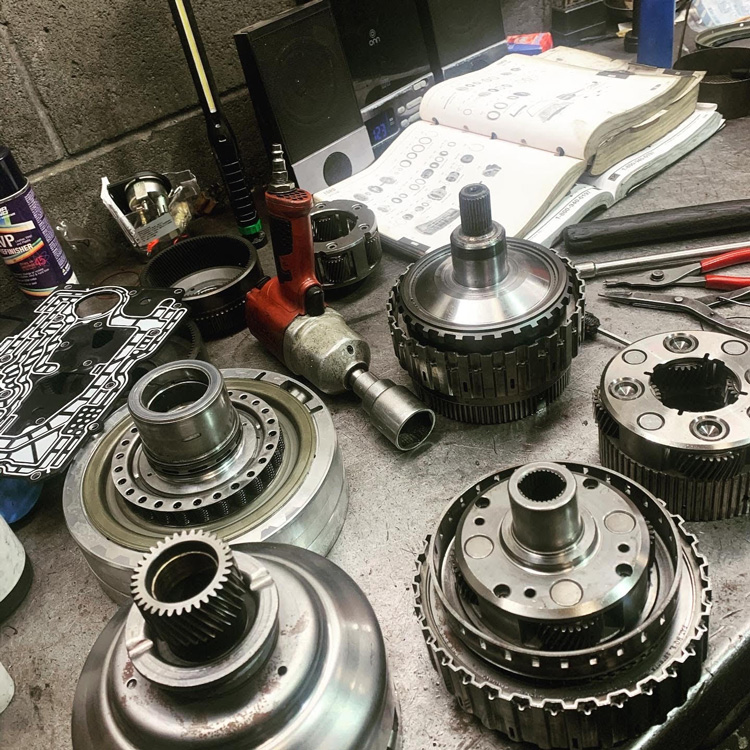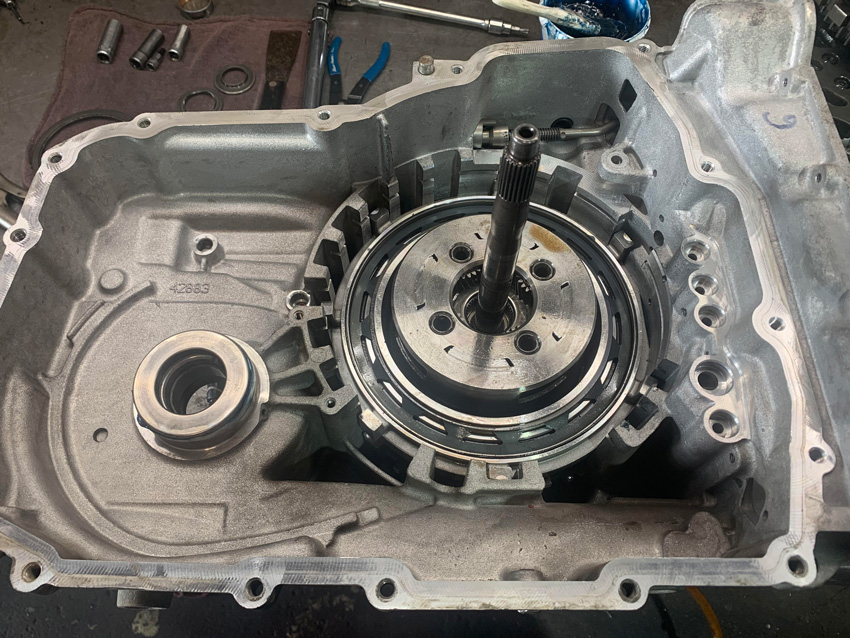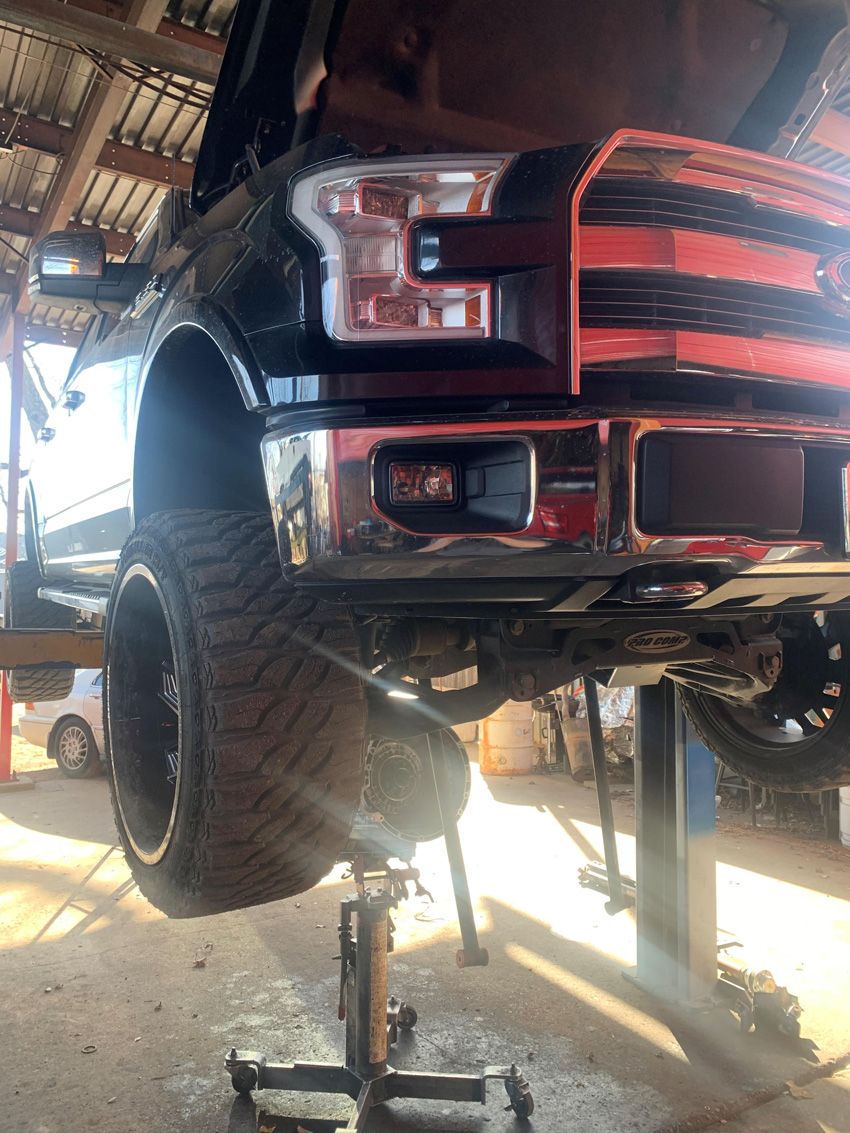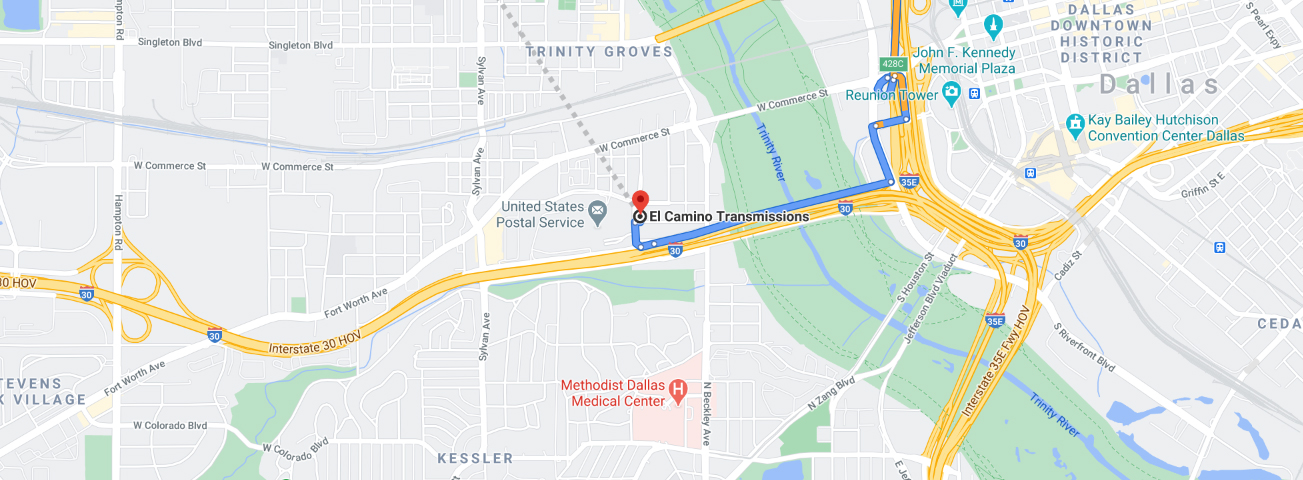Frequently Asked Questions (FAQS)
How do I know if my transmission is going
Common signs include slipping gears, delayed shifting, grinding noises, or fluid leaks. If you’re not sure, we offer free diagnostics with major repair.
Do you offer warranties?
Yes! All our transmission rebuilds come with a warranty. Ask us for specific details based on your vehicle.
Is towing really free?
Yes — towing is 100% free with any major repair. Just give us a call and we’ll handle the rest.
How long does a transmission rebuild take?
Most rebuilds take between 2 to 4 days, depending on parts and complexity. We’ll keep you updated every step of the way.
Do you work on foreign and domestic vehicles?
Absolutely — we service all makes and models.
Preguntas Frecuentes (FAQs)
¿Cómo sé si mi transmisión está fallando?
Los síntomas comunes incluyen cambios que se deslizan, retrasos al cambiar, ruidos extraños o fugas de líquido. Si tiene dudas, ofrecemos diagnóstico gratuito con reparación mayor.
¿Ofrecen garantías?
¡Sí! Todas nuestras reconstrucciones de transmisión incluyen garantía. Pregunte por los detalles específicos para su vehículo.
¿El remolque es realmente gratis?
Sí — el remolque es completamente gratis con cualquier reparación mayor. Llámenos y nos encargamos de todo.
¿Cuánto tiempo tarda una reconstrucción de transmisión?
La mayoría toman entre 2 a 4 días, dependiendo de las piezas y la complejidad. Le mantendremos informado durante todo el proceso.
¿Trabajan con vehículos extranjeros y nacionales?
¡Claro! Reparamos todas las marcas y modelos.
Transmission Maintenance Tips
CHECK YOUR TRANSMISSION FLUID PERIODICALLY
On many cars, light trucks, and SUVs, checking the transmission fluid is as easy as checking the oil: with the engine idling, pull out the dipstick, wipe it off, insert it again, wait, then pull it out to get an accurate reading. If the fluid level is low, you may have a leak. The fluid itself should be a bright red colour, clear, and it should smell sweet. If it’s murky, dark coloured, or smells like rotting fish take it to a transmission repair specialist to look things over.
USE THE RIGHT TYPE OF TRANSMISSION FLUID
Always consult your vehicle’s owner’s manual to determine what type of transmission fluid you should use. If after doing so you’re still not sure, pop in to a Mister Transmission and ask a professional.
HAVE YOUR ENGINE"S COOLING SYSTEM SERVICED
Your vehicle’s cooling system helps prevent the engine from overheating. But did you know it also ensures the transmission fluid pumping through the gearbox is cooled too? It’s more likely you’ll need a transmission repair before your engine completely overheats. Make sure your cooling system is in optimal condition.
GET YOUR TRANSMISSION FLUSHED REGULARLY
Changing the transmission fluid in your car is best left to a professional. Consult your car’s owner’s manual, but in general, get your vehicle’s transmission flushed once a year. How long the transmission fluid in your car will last depends on the vehicle’s operating temperature and how much driving you do.
DON"T CHANGE GEARS WHILE YOUR CAR IS MOVING
Bring your vehicle to a complete stop before changing gears from ‘drive’ to ‘reverse’ or vice-versa. Failing to do so simply puts strain on your transmission and after awhile it can lead to a serious problem.
LET YOUR CAR WARM UP BEFORE YOU DRIVE
Who among us has hopped into the driver’s seat, started the engine, put the car in drive and motored away? (Full disclosure: I’m as guilty as you are) Always allow your engine a few minutes to warm up before you begin to drive, especially during the winter months.
DON’T DRIVE ON A SPARE TIRE FOR AN EXTENDED PERIOD OF TIME
Mismatched tire sizes, or driving with a small spare tire over a long period of time is a no-no. Not only will it do damage to other parts of your vehicle such as ruin the wheel alignment, after a while it puts unnecessary strain on the transmission.
REGULARLY CHANGE THE TRANSMISSION FILTER
That’s right: your car’s automatic transmission may have a filter, and it needs to be changed from time to time. Whether or not you’re driving a car that has a transmission filter depends entirely on the make and model. Most newer vehicles don’t have a transmission filter but those that do should be changed each time you get your transmission flushed.
AVOID USING YOUR VEHICLE FOR TOWING
Using your car to tow heavy loads, particularly in hot temperatures, can cause the transmission fluid to oxidize or burn, and in turn, do a lot of damage to the transmission.
HAVE YOUR TRANSMISSION INSPECTED ANNUALLY
Having a certified transmission repair specialist conduct a diagnostic check of your transmission for leaks and other abnormalities at least once a year, as well as checking the transmission fluid’s level, color, and smell periodically is smart preventative maintenance.
El Camino Transmission Auto Sales and Services
259 W Comstock St, Dallas, TX 75208
El Camino Transmission is family owned and committed to keeping your car on the road utilizing our 30 years of experience.





